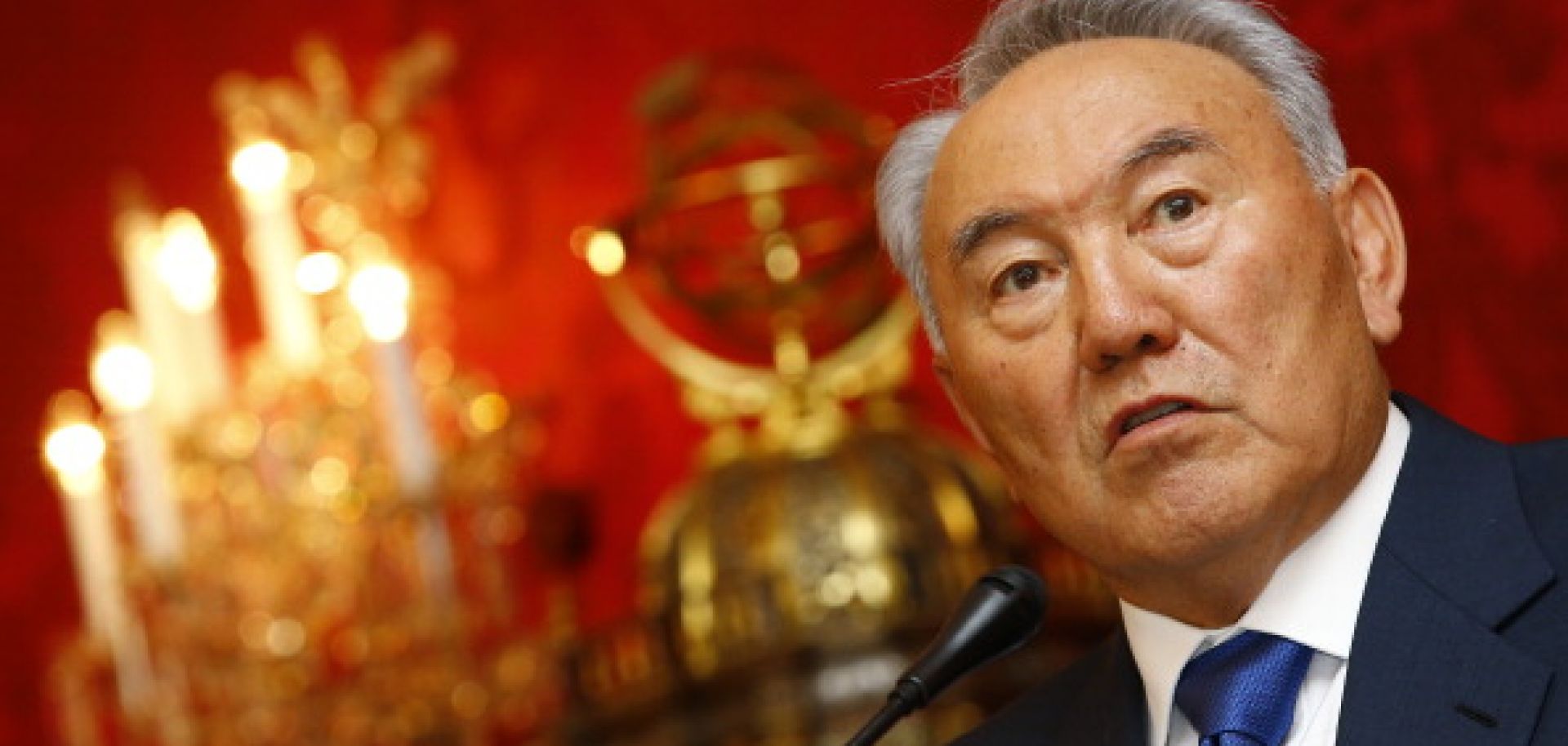ASSESSMENTS
Kazakhstan: The Evolution of a Power Structure
Jan 7, 2013 | 11:30 GMT

ALEXANDER KLEIN/AFP/Getty Images
Summary
The question of succession in Kazakhstan has drawn greater attention as the country's long-serving leader Nursultan Nazarbayev advances in age. Nazarbayev has been in power for more than 20 years, and at 72 years old he is well past the average life expectancy for Kazakh males. Kazakhstan is important because of its strategic location — flanked by Russia to the north and west and by China to the east — and its sizeable energy and mineral resources. This gives the succession issue significant domestic and regional importance.
Particularly in a country like Kazakhstan — whose geography naturally fosters regionalism — power historically has been centralized under strong and authoritarian leadership. However, this power has depended on the influence of numerous domestic and external actors within a particular structure. This structure will be instrumental in shaping the country's political trajectory.
Subscribe Now
SubscribeAlready have an account?
